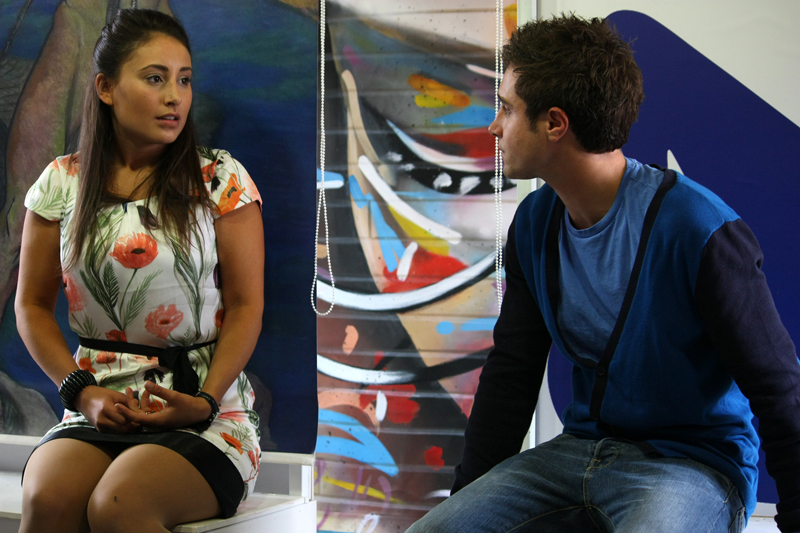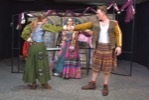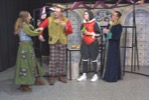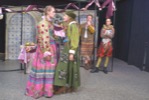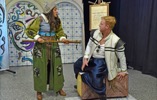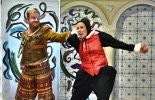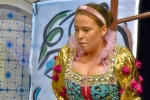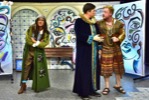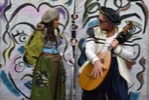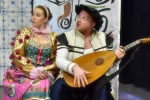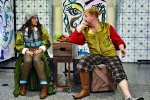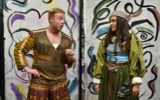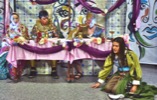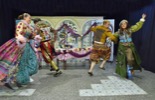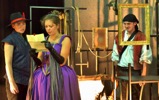von Neil LaBute
Wie weit würde man für die Liebe gehen oder für die Kunst? Was wäre man bereit zu ändern? Welchen Preis wäre man bereit zu zahlen? Solche schmerzhaften Fragen untersucht Neil LaBute im Stück The Shape of Things, das das Pygmalion-Thema aufgreift.
Ein junger Student schlittert in eine sich ständig verändernde Beziehung zu einer Kunststudentin, während die Verlobung seines besten Freundes bröckelt. So entfesselt sich ein Drama, das die Haut zweier moderner Beziehungen entfernt, um das rohe Fleisch und die Knorpel darunter frei zu legen.
Neil LaBute ist einer der bedeutendsten amerikanische Gegenwartsdramatiker und seine Stücke gehören seit mehreren Jahren auch zum Repertoire vieler Theater in Deutschland.
Fotos von 'The Shape of Things'
Textauszug aus 'The Shape of Things'
| Evelyn: | My graduate advisor gave me this advice five months ago... “Strive to make art, but change the world:” Pretty wise words, I thought, at the time, and so, being a good little student, that's what I set out to do. As I looked around my world for something to change, I knew I'd been given a tall order. “Change the world.” So, I decided to do the next best thing, which was change someone's world. I mean, that's a start, right? With that in mind, I present to you this, my newest work. It is a human sculpture on which I've worked these past eighteen weeks, and of whom I'm very proud. The piece itself – him – is untitled since I think, I hope, that it will mean something different to each of you and, frankly, anyone who sees it. On our first official encounter after he asked me out, I coaxed him into eating his first vegetarian meal. Well, as vegetarian as a spinach-and-mushroom calzone can be... Anyway, he told me that for him it was a huge deal and it does mark the beginning of my systematic makeover, or “sculpting”, if you will, of my two very pliable materials of choice: the human flesh and the human will. |




